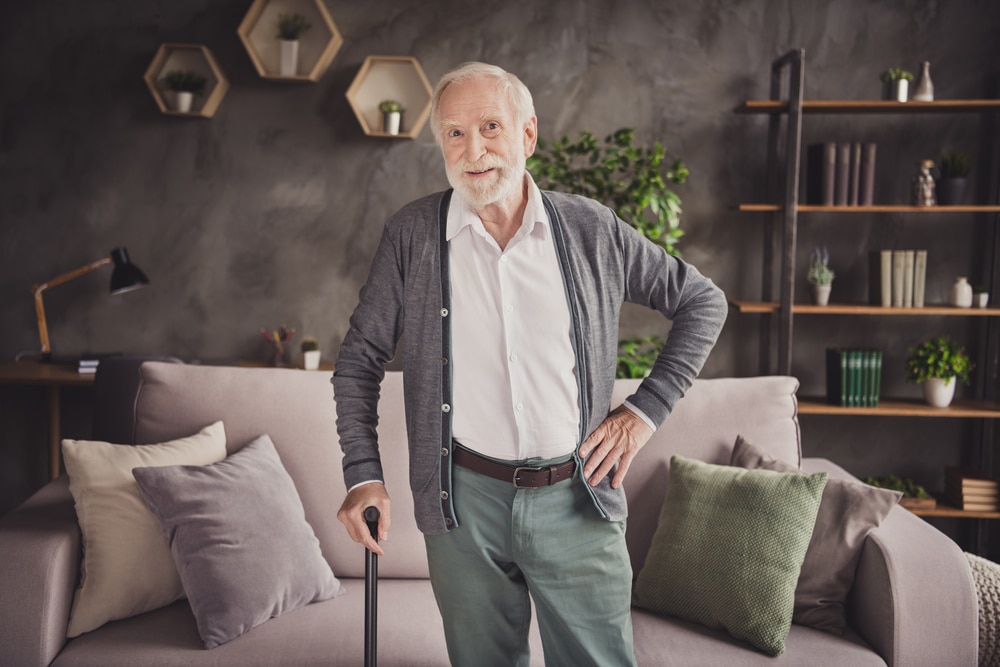Fall Prevention for Seniors
The Centers for Disease Control and Prevention reports that one out of four older adults falls every year. Taking a fall doubles a person’s risk of falling again and can cause a wide range of injuries. Sadly, even if a senior isn’t injured, the fear of falling may cause them to restrict their activities. Becoming less active can lead to physical weakness, which can actually leave them more vulnerable to falling.
Fortunately, there’s a better way to deal with any fear of falling: fall prevention. Embracing a few simple fall prevention strategies for seniors can help you protect yourself.
Discover the Risks
Knowing where a potential problem spot exists prepares you to look for a solution. As the National Institute on Aging explains, seniors frequently face circumstances that can increase their risk of falls:
- Eyesight, hearing, and reflexes are often less sharp in older adults.
- Medications and interactions between medications can cause side effects like dizziness, lightheadedness, and confusion.
- Medical conditions like diabetes, cardiovascular disease, blood pressure issues, and dementia can increase the risk of balance problems.
- Injuries to the feet or their nerves and veins can lead to pain, gait problems, and balance issues.
- Incontinence and other conditions that cause people to rush to the restroom can prompt reckless movements.
- Hazards in home and public environments also create fall risks.
Choose Sensible Shoes
Stylish, fun footwear can be a health hazard. Instead of choosing shoes that set the stage for a slip or trip, opt for sensible, well-fitting footwear that will stay on your feet without increasing your risk. Flat shoes with a nonskid sole are the best bet.
Embrace Assistive Devices
It’s often said that pride goes before a fall, and many seniors struggle with their pride when it comes to accepting the need to use a cane, walker, or other assistive devices. If you need something like this, consider how much freedom you’ll gain. Think about the fact that your example may make it easier for someone else who needs the device to step out in public with it. Then, remember that avoiding a painful injury from a fall can be worth it.
Stay Active
Being physically active helps to improve or maintain muscle mass, strength, coordination, flexibility, and balance. That reduces your risk of falling. Gentle, joint-friendly exercises are great choices, so consider water workouts, walking, or tai chi.
Let Light in Your Home
The chance of falling increases when you cannot see where you’re walking. Lighting up your home makes the space safer. Choose lightbulbs and fixtures that provide sufficient illumination. Use nightlights to ensure that you can see even when the primary lights are off. Keep flashlights handy so that you can grab them without fumbling in the event of a power outage.
Minimize Hazards in Your Living Space
Clutter, disorganization, and messes are hazards. Minimize them, and you’ll make your home a safer space. Keep walkways clear, and avoid putting stuff where it might fall into a walkway. Store frequently used items and necessities where you can reach them easily. Be sure they’re put away promptly when not in use. Clean up any spills or mess immediately to avoid slipping. If you notice damaged flooring, repair it promptly to avoid a fall.
Talk with Your Healthcare Team
When it comes to fall prevention for seniors, doctors are invaluable allies. Ask your doctors about your fall risk. After reviewing your medications, your fall history, and your known health conditions, your doctor can probably give you an idea of your general risk. They may also be able to offer some specific strategies that are tailored to your situation.

